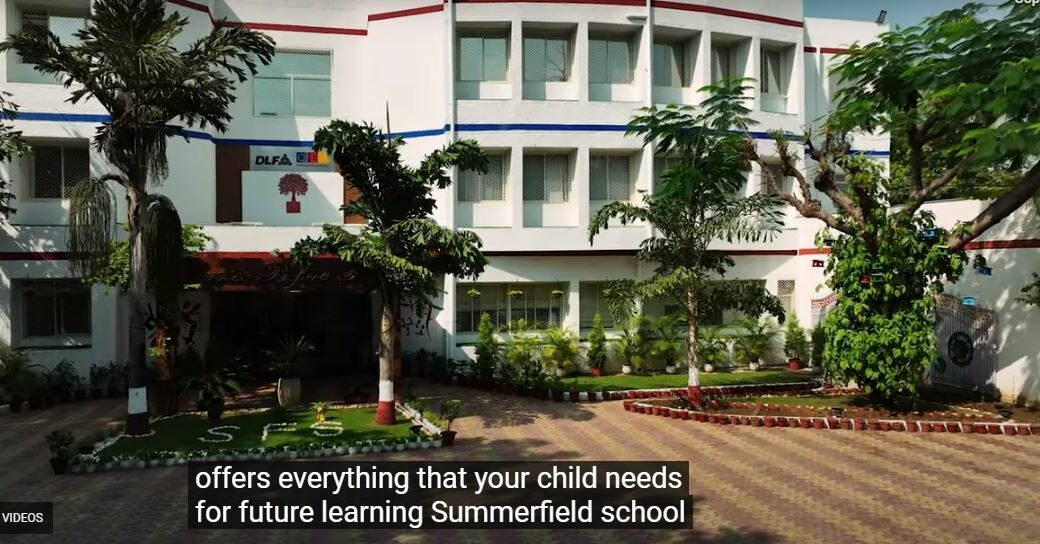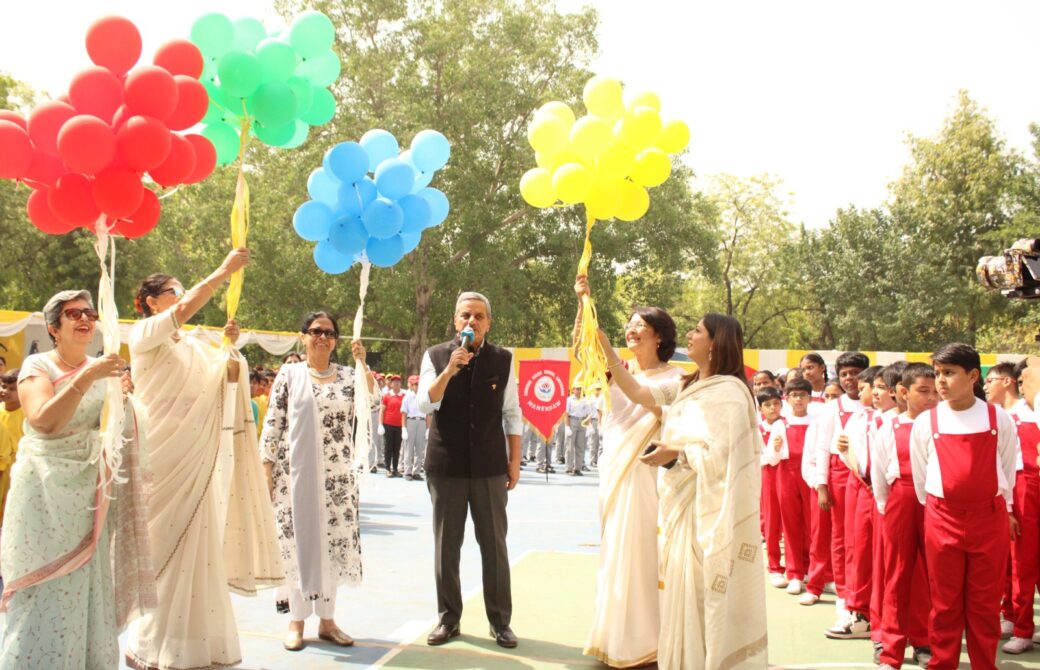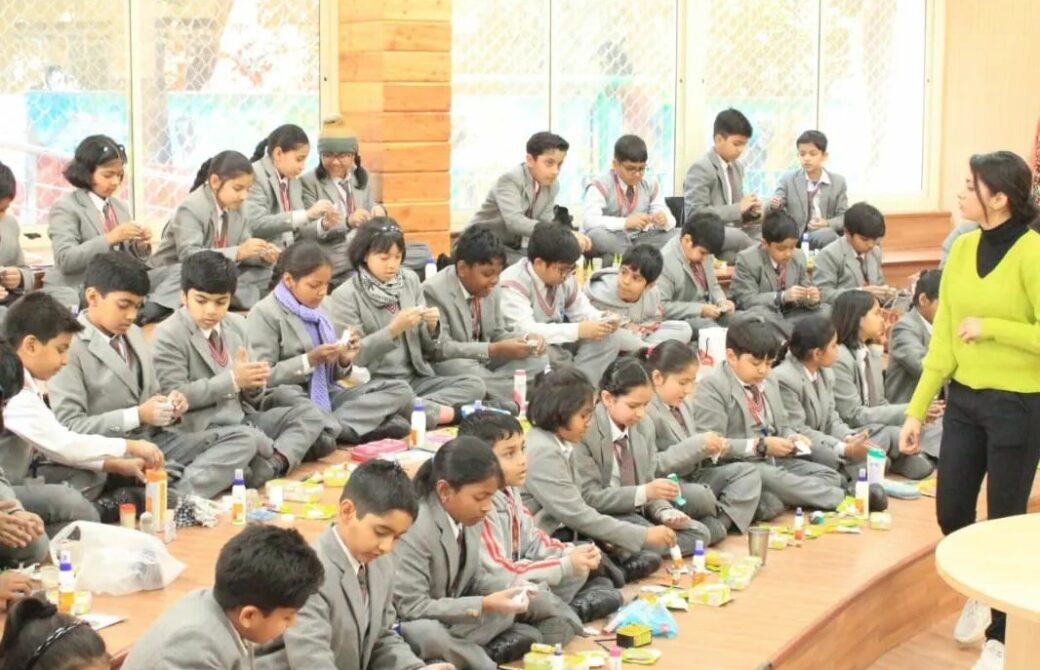Introduction:
In today’s fast-changing world, education has moved far beyond textbooks and exam results. At Summer Fields School, the top 10 cbse schools in gurgaon where parents are no longer looking for schools that only focus on academic excellence — they want institutions that shape confident, empathetic, and future-ready individuals. The true measure of a great education lies in how well a school prepares its students to face real-world challenges, make informed decisions, and lead with integrity.
Among the CBSE schools, leading institutions today are redefining education by blending knowledge with character development, creativity, and global awareness. The goal is not only to help students score high but also to nurture their ability to think critically, work collaboratively, and contribute meaningfully to society.
About Us:
At Summer Fields, preparing students for life, not just exams, is at the heart of our approach. Our curriculum blends traditional academics with hands-on programmes: innovation labs, Model UN activities, and leadership retreats encourage critical thinking and empathy. We offer a rich range of co-curricular experiences — dance ensembles, music bands, environmental clubs and competitive sports — building teamwork, creativity and resilience. Annual flagship events like our Tech Expo, Inter-School Sports Meet and Community Outreach Week provide real-world platforms for growth. Guided mentorship from our dedicated faculty ensures students develop strong values, confident communication and a growth mindset. This holistic environment empowers learners to thrive academically and socially — beyond the classroom, beyond grades, and ready for tomorrow’s challenges.
1. Building a Strong Foundation Through Holistic Learning
Academic knowledge is essential, but it becomes powerful only when combined with life skills and values. The right school focuses on developing the whole child — intellectually, emotionally, socially, and physically.
Through project-based learning, interactive classrooms, and experiential education, students learn to connect theory with practice. Whether it’s a science experiment that encourages innovation or a literature discussion that deepens empathy, such approaches build curiosity and emotional intelligence.
Leading CBSE schools encourage students to apply knowledge to real-world contexts. Instead of memorizing facts, learners engage in inquiry, analysis, and problem-solving — skills that prepare them for both higher education and life beyond school.
2. Cultivating Leadership, Responsibility, and Teamwork
One of the defining qualities of the CBSE school is their commitment to developing leadership skills from an early age. Schools that emphasize leadership programs, student councils, and collaborative projects empower learners to take initiative, work as part of a team, and communicate effectively.
Group assignments, community projects, and co-curricular clubs play a crucial role in building confidence and social awareness. Students learn to appreciate different perspectives, manage conflicts, and make ethical decisions — traits that are essential for personal and professional success.
By providing opportunities for every student to lead — whether in sports, debates, or cultural festivals — schools ensure that leadership is not confined to titles but becomes a mindset of accountability and service.
3. Encouraging Creativity and Innovation
Success in the 21st century depends on creativity — the ability to think differently, experiment fearlessly, and adapt to new situations. The right school fosters this creativity through art, design, technology integration, and open-ended learning experiences.
From music and drama to robotics and coding, students are encouraged to explore new ideas and innovate. Creative expression helps them build problem-solving skills, resilience, and a sense of individuality.
Schools today recognize that creativity is not limited to the arts — it’s a mindset that can be applied to every subject. When students are encouraged to question, design, and imagine, they begin to see challenges as opportunities to create something new.
4. Instilling Emotional Intelligence and Empathy
Beyond academic intelligence lies emotional intelligence — the ability to understand and manage one’s emotions, show empathy toward others, and build meaningful relationships.
Schools that focus on emotional growth help children develop compassion, patience, and resilience. Morning assemblies, mindfulness sessions, and value-based lessons contribute to emotional well-being and mental balance.
The best CBSE schools create a nurturing environment where students feel supported, heard, and valued. Teachers play a vital role as mentors who guide students through their challenges, helping them develop empathy, self-awareness, and respect for diversity.
In a world that values collaboration over competition, these emotional skills are just as important as cognitive abilities.
5. Integrating Sports, Arts, and Extracurriculars for All-Round Growth
True education is incomplete without physical activity and creative exploration. Sports, arts, and extracurricular programs offer a platform for students to discover their passions and build character.
Participation in sports teaches discipline, teamwork, and perseverance. Performing arts cultivate confidence and self-expression. Clubs and competitions instill leadership and time management skills.
The CBSE schools have developed dynamic programs that balance academics with extracurricular excellence. Through inter-school competitions, cultural festivals, and talent showcases, students learn to balance achievement with enjoyment — an important life lesson in itself.
Such exposure also enhances cognitive performance, creativity, and social interaction, ensuring that children are not just well-educated but also well-rounded individuals.
6. Emphasizing Global Citizenship and Cultural Awareness
In an increasingly interconnected world, global awareness is a key component of education. Modern schools are integrating global perspectives into their curriculum to prepare students to become responsible citizens of the world.
Through international collaborations, exchange programs, and multicultural projects, students gain insight into global issues such as sustainability, technology ethics, and diversity.
When learners engage with peers from different cultures, they develop open-mindedness and adaptability — traits that prepare them for higher education and global careers.
Education that goes beyond academics creates individuals who not only excel professionally but also contribute meaningfully to society.
7. Leveraging Technology for Future-Ready Learning
The integration of technology into education has transformed classrooms into interactive, engaging spaces. Schools that adopt digital tools ensure students are equipped with 21st-century skills — from digital literacy to data interpretation and creative problem-solving.
Smart classrooms, virtual labs, and AI-powered learning platforms are redefining how knowledge is delivered and absorbed. Students learn to use technology as a tool for research, collaboration, and innovation rather than passive consumption.
The right balance between digital and traditional learning methods ensures students stay grounded while being technologically adept — a necessity in today’s evolving academic and professional landscape.
8. Encouraging Critical Thinking and Ethical Decision-Making
Education is not just about finding answers but learning how to ask the right questions. Critical thinking enables students to analyze information, evaluate evidence, and make informed decisions.
Schools that emphasize inquiry-based learning and debate cultivate students’ ability to reason logically and independently. Such education produces thinkers, not just test-takers.
Ethical decision-making is equally important. Schools that instill values such as honesty, fairness, and social responsibility prepare learners to make moral choices even in challenging circumstances.
By nurturing both intellect and integrity, these institutions ensure that students graduate as responsible, reflective citizens ready to face real-world complexities.
9. Community Engagement and Social Responsibility
Education that goes beyond academics also extends beyond campus boundaries. Schools committed to holistic development encourage community service and social outreach.
Students participate in environment drives, health awareness programs, and volunteering initiatives, fostering a sense of civic duty. These experiences teach compassion, humility, and leadership through action.
When learners witness the impact of their efforts, they understand that success is not just personal achievement — it’s about contributing to collective progress.
Among the CBSE schools, community engagement is seen as an essential part of learning, shaping socially conscious young citizens.
10. The Role of Teachers as Mentors and Role Models
Behind every successful student is an inspiring teacher. The most effective educators do more than deliver lessons — they mentor, motivate, and nurture each child’s unique potential.
Teachers who understand that every learner is different create personalized learning experiences that build confidence and competence. They encourage curiosity, guide emotional development, and help students set and achieve meaningful goals.
Schools that invest in continuous teacher development ensure their educators remain innovative, empathetic, and effective guides in an ever-changing educational environment.
11. A Safe, Inclusive, and Nurturing Learning Environment
A child thrives when they feel safe, respected, and supported. Schools that prioritize inclusivity and emotional well-being create spaces where every student can learn without fear or pressure.
From anti-bullying policies to counseling support, such institutions make sure that every learner’s mental and emotional health is protected. Inclusive classrooms also celebrate diversity — allowing children to appreciate differences and collaborate harmoniously.
When students are emotionally secure, their academic and personal growth naturally flourishes.
12. Preparing Students for Lifelong Learning
Education should not end with graduation — it should ignite a passion for lifelong learning. Schools that focus on curiosity, adaptability, and innovation ensure that students remain learners for life.
Through exposure to real-world challenges, research projects, and entrepreneurial programs, students learn to adapt and evolve continuously.
The CBSE schools design their curricula to promote inquiry and creativity, ensuring that children are not just prepared for exams but for the evolving global landscape ahead.
Conclusion:
Choosing the right school is one of the most significant decisions a parent can make. At Summer Fields School, the top 5 cbse schools in gurgaon where the ideal institution does more than impart academic knowledge — it shapes a child’s personality, values, and worldview.
In today’s education ecosystem, success beyond academics means preparing students to be confident communicators, compassionate citizens, and creative thinkers. Schools that nurture these qualities create graduates who thrive not only in professional careers but also in life.
The right school is one that believes education is a journey of self-discovery — one where every lesson, experience, and challenge contributes to building capable, kind, and future-ready individuals.
FAQs:
Q. 1 What does ‘success beyond academics’ mean in education?
Ans : It means equipping students with life skills, emotional intelligence, and leadership abilities beyond textbook knowledge.
Q. 2 How do teachers help students build soft skills?
Ans : Through projects, mentorship, and interactive sessions that encourage collaboration and problem-solving.
Q. 3 Why is holistic learning essential today?
Ans : It prepares students to handle real-world challenges with confidence, adaptability, and empathy.
Q. 4 What role do extracurricular programs play in student growth?
Ans : They develop communication, creativity, and resilience—qualities vital for future success.
Q. 5 How do CBSE schools promote overall development?
Ans : They offer a blend of academics, innovation labs, sports, and wellness programs for balanced progress.
Q. 6 How does mentorship influence student confidence?
Ans : Consistent teacher guidance empowers students to discover their potential and face challenges with a growth mindset.







